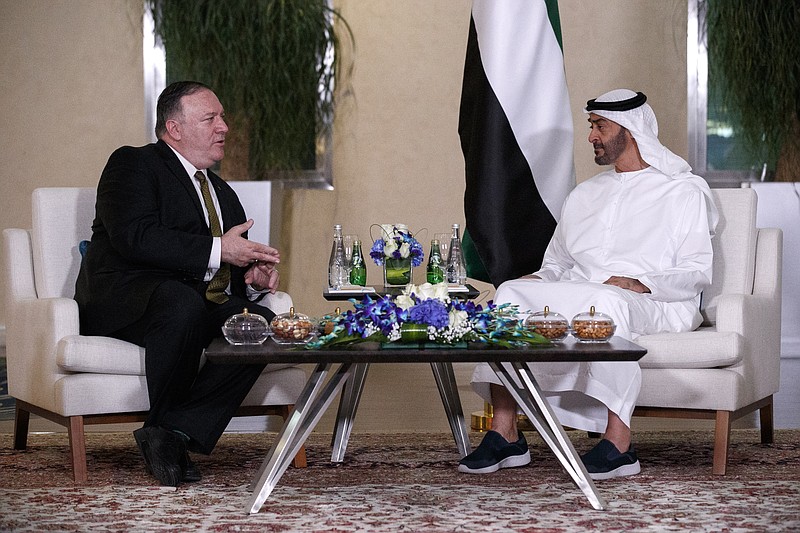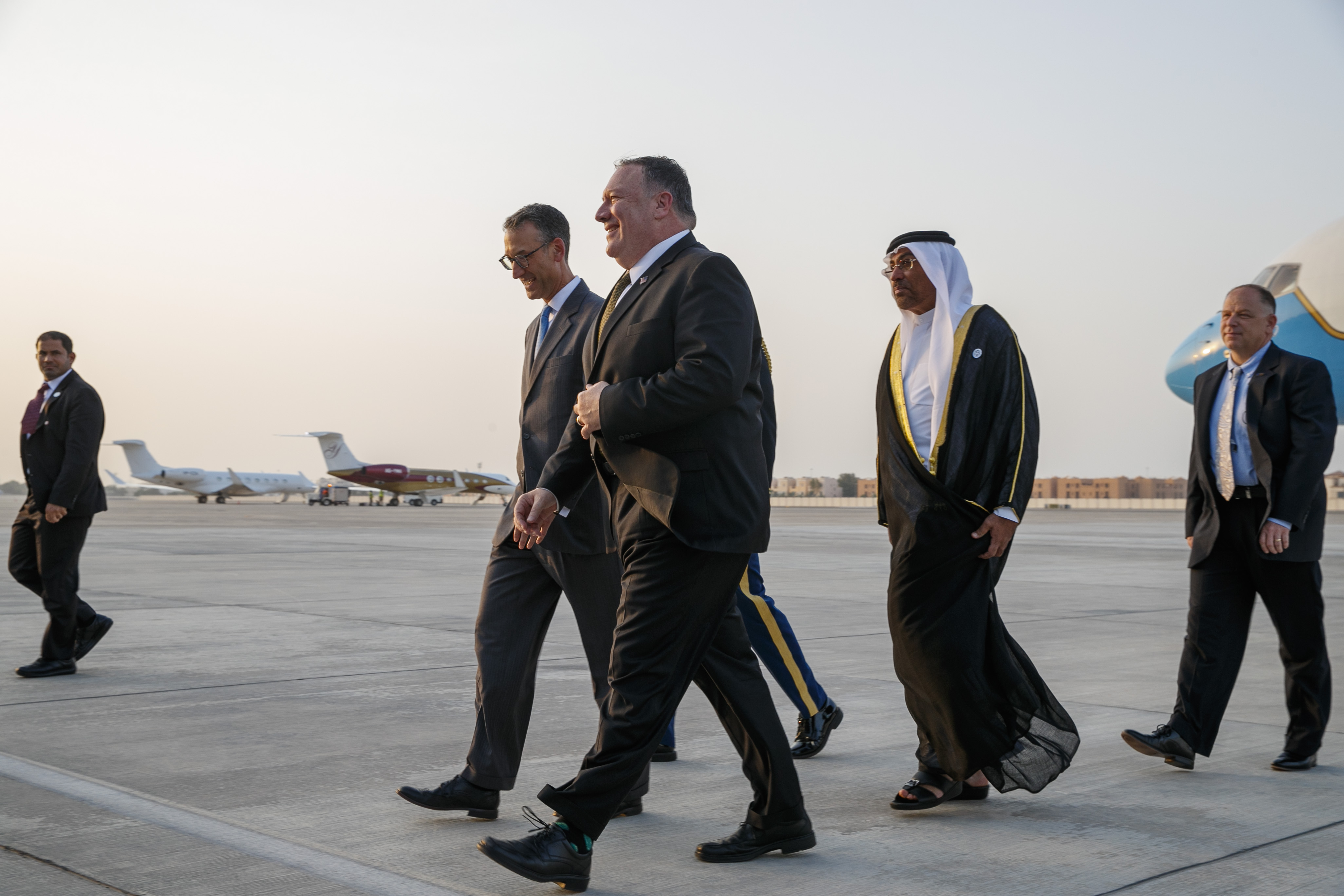DUBAI, United Arab Emirates - U.S. Secretary of State Mike Pompeo talked Monday with leaders in Saudi Arabia and the United Arab Emirates about countering the military threat from Iran by building a broad, global coalition that includes Asian and European countries.
While Pompeo has seemingly willing and wealthy partners in the two Arab allies, he is likely to face a tough sell in Europe and Asia, particularly from those nations still committed to the 2015 nuclear deal with Iran that President Donald Trump repudiated last year.
With tensions running high in the region after Iran shot down a U.S. surveillance drone on June 20 and Trump said he aborted a retaliatory strike, Iran's naval commander warned that his forces won't hesitate to down more U.S. drones that violate its airspace. The U.S. has been building up its military presence in the Persian Gulf.
The U.S. announced additional sanctions Monday on Iran aimed at pressuring the Iranian leadership into talks. The sanctions, re-imposed after Trump withdrew from the nuclear deal, have crippled the Iranian economy and pushed up the cost of living. Iran has decried U.S. sanctions, which essentially bar it from selling its oil internationally, as "economic terrorism."
After departing Saudi Arabia, where he met King Salman and Crown Prince Mohammed bin Salman, Pompeo met in the UAE with Abu Dhabi Crown Prince Mohammed bin Zayed to sell the Trump administration's idea for maritime security in the Persian Gulf. The plan would involve the UAE, Saudi Arabia and another 20 countries, Pompeo was heard telling the Abu Dhabi prince.
"We'll need you all to participate, your military folks," Pompeo told the Abu Dhabi prince in the presence of some reporters traveling with him. "The president is keen on sharing that the United States doesn't bear the cost of this."
While in Saudi Arabia earlier, Pompeo tweeted that he'd had a "productive meeting" with the Saudi monarch and discussed "heightened tensions in the region and the need to promote maritime security" in the Strait of Hormuz.
Pompeo, considered a hard-liner in Washington, referred to Iran as "the world's largest state sponsor of terror" before he embarked on the hastily arranged Middle East stops en route to India, Japan and South Korea.
He said he'd be speaking with leaders in Saudi Arabia and the UAE "about how to make sure that we are all strategically aligned, and how we can build out a global coalition not only throughout the Gulf states, but in Asia and in Europe" that is prepared to push back against Iran.
But Germany, France and Britain, as well as Russia and China, remain part of the nuclear accord that lifted sanctions on Iran in exchange for set limits on its uranium enrichment levels. Trump pulled the U.S. out of the deal last year.
Germany, Britain and France have sent envoys to Tehran recently, signaling they remain committed to diplomacy and dialogue. They cautioned against moves that can lead to conflict between the U.S. and Iran.
Berlin appears cool toward U.S. talk of a global coalition against Iran as it tries to salvage the nuclear deal. German media have drawn parallels between Pompeo's talk of a coalition and President George W. Bush's "coalition of the willing" against Iraq in 2003, which Germany and France opposed.

